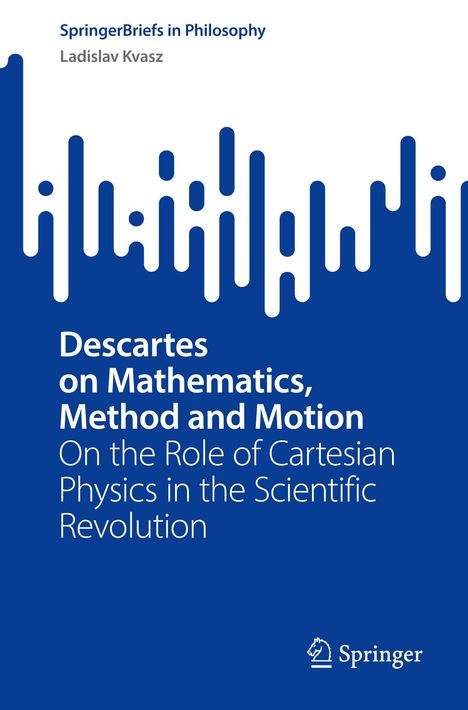Ladislav Kvasz: Descartes on Mathematics, Method and Motion, Kartoniert / Broschiert
Descartes on Mathematics, Method and Motion
Buch
- On the Role of Cartesian Physics in the Scientific Revolution
lieferbar innerhalb 2-3 Wochen
(soweit verfügbar beim Lieferanten)
(soweit verfügbar beim Lieferanten)
Aktueller Preis: EUR 54,75
- Verlag:
- Springer Nature Switzerland, 04/2024
- Einband:
- Kartoniert / Broschiert, Paperback
- Sprache:
- Englisch
- ISBN-13:
- 9783031570605
- Artikelnummer:
- 11853910
- Umfang:
- 88 Seiten
- Nummer der Auflage:
- 2024
- Ausgabe:
- 2024
- Gewicht:
- 149 g
- Maße:
- 235 x 155 mm
- Stärke:
- 6 mm
- Erscheinungstermin:
- 27.4.2024
- Hinweis
-
Achtung: Artikel ist nicht in deutscher Sprache!
Klappentext
This book argues that Descartes physics was a milestone on the road to modern mathematical physics. After Newton introduced a completely different approach to mathematical description of motion, Descartes physics became obsolete and even difficult to comprehend. This text follows the language of Descartes and the means of which motion can be described. It argues that Descartes achieved almost everything that later Newton was able to döto describe the motion of interacting bodies- by different (i. e. algebraic) means. This volume completely refutes the received view according to which Descartes physics was merely a kind of discursive natural philosophy. To make this interpretation more plausible the book follows Descartes ideas from his early work in mathematics, through his invention of the analytic method towards his mature physics. It shows that Descartes followed a similar heuristic pattern.The volume appeals to students and researchers; it invites the reader equippedwith minimal understanding of college mathematics to follow Descartes on his intellectual journey through the Scientific Revolution. The reader will gain a deeper understanding of the role of mathematical language in the creation of modern physics and a glimpse into the fascinating world of Descartes scientific thought. Several of Descartes philosophical ideas can be traced back to his scientific interests and thus the book elucidates the motivation behind some of Descartes key positions in the area of epistemology and method. In the penultimate chapter the book presents four arguments in favor of seeing Descartes as a physicist on par with Galileo and Newton.

Ladislav Kvasz
Descartes on Mathematics, Method and Motion
Aktueller Preis: EUR 54,75

